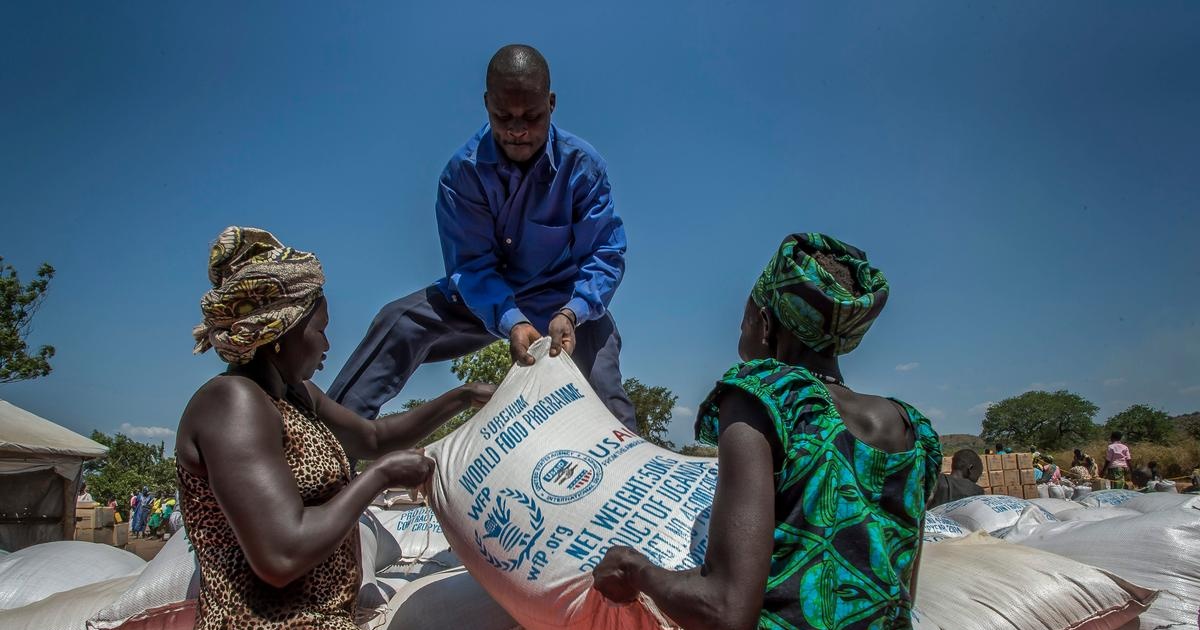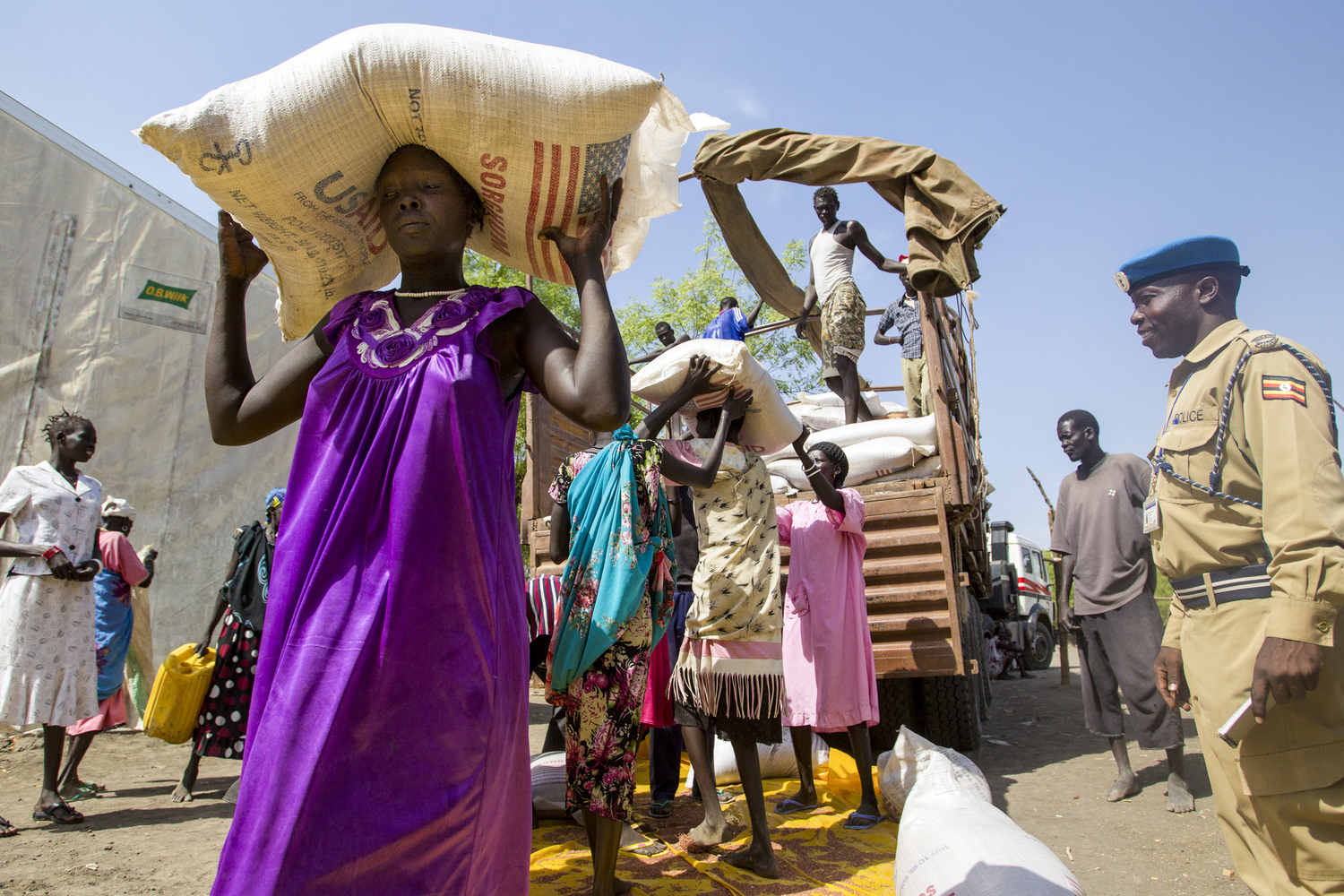
In October 2021, Elon Musk officially surpassed Jeff Bezos to become the richest person on Earth, boasting an estimated net worth of $221 billion. It was a moment that drew global attention, not only for the symbolic passing of the crown but also because of a direct challenge that followed almost immediately.
David Beasley, then head of the United Nations World Food Program (WFP), seized the moment with a tweet aimed squarely at Musk, congratulating him while issuing a call to action: donate $6.6 billion to help save 42 million people from the imminent threat of starvation.
Beasley's message was not framed as a polite request. It was a blunt, urgent plea that underscored the dire humanitarian crisis unfolding worldwide. Just days later, Beasley appeared on CNN’s Connect the World, emphasizing that $6 billion could be the critical difference between life and death for millions. “It’s not complicated,” he asserted.
Governments were financially exhausted after years of pandemic fallout, and it was time for billionaires to step into the breach, he argued. A one-time donation, he stressed, could avert unimaginable suffering.

Beasley added weight to his plea by pointing out a staggering fact: Musk had added $6 billion to his net worth in a single day. "What if it was your daughter starving to death? What if it was your family?" he asked pointedly, appealing to basic human empathy. "Wake up, smell the coffee, and help," he urged.
Musk’s reply came five days later and carried the tone of both willingness and skepticism. "If WFP can describe on this Twitter thread exactly how $6B will solve world hunger," Musk tweeted, "I will sell Tesla stock right now and do it." He added a critical caveat: the accounting must be fully transparent and open to public scrutiny.
Beasley responded by clarifying that $6 billion would not end world hunger but would instead stave off the starvation of 42 million people amid an extraordinary hunger crisis. "This is a one-time donation to save 42 million lives during this unprecedented hunger crisis," he tweeted back. "The world is on fire."
On November 15, 2021, the WFP published an extensive and detailed spending plan outlining precisely how $6.6 billion would be allocated. The plan proposed that $3.5 billion would go to direct food procurement and delivery, $2 billion for cash and food vouchers distributed in areas where markets could function, $700 million for developing country-specific programs tailored to vulnerable populations, and $400 million for administration, logistics, and oversight to ensure efficient distribution and compliance.

Beasley once again reached out to Musk publicly, tweeting a link to the detailed proposal with the remark, “You asked for a clear plan & open books. Here it is!”
However, despite the WFP providing a breakdown and transparent blueprint for how the money would be used, Musk did not engage further. Importantly, some observers noted that Beasley's detailed proposal was shared via a new tweet rather than continuing the original thread Musk had demanded, providing a possible technicality for Musk’s silence. But regardless of the thread logistics, public expectation lingered.
Many wondered whether Musk would fulfill the spirit of his challenge or move on without further action.
The reactions to the UN's plan were sharply divided. Some praised the WFP for unprecedented transparency and hailed Beasley's leadership. Others, however, criticized the plan for failing to meet Musk’s initial condition: how exactly $6 billion would solve world hunger.

Detractors argued that the proposal focused too heavily on short-term relief rather than offering a sustainable solution to the complex systemic issues behind food insecurity. Additionally, the $400 million administrative and logistics budget drew particular scrutiny, with critics questioning the proportionality and efficiency of such overhead costs.
Meanwhile, in a separate development, an SEC filing from November 2021 revealed that Musk had indeed made a sizable charitable donation around the same time — approximately $5.7 billion worth of Tesla stock. Yet the filing did not specify the recipient. Speculation ran rampant, with many hoping it might have been the WFP.
By early 2022, reports from Bloomberg and other outlets confirmed that the recipient was, in fact, Musk’s own philanthropic organization, the Musk Foundation. Further disclosures indicated that in 2021, the Musk Foundation distributed approximately $160 million in donations.
Among the largest beneficiaries were St. Jude Children's Research Hospital, which received $55 million, and the XPrize Foundation, which received $54 million. No public record indicated that any funds were directed to the WFP, leaving Beasley’s plea unanswered in practical terms.

Today, nearly four years after the original exchange, the situation regarding global hunger remains devastating. According to the latest State of Food Security and Nutrition report by the World Health Organization, approximately 733 million people worldwide are still affected by hunger, representing roughly one in 11 people.
Despite heightened global awareness and recurring calls for billionaire philanthropy to bridge funding gaps left by exhausted governments, the tangible contributions needed to shift outcomes at a systemic level remain elusive.
For Musk, the incident offers an enduring case study of the chasm between social media bravado and real-world impact. His initial willingness to engage publicly, paired with a demand for rigorous transparency, appealed to those who advocate for accountability in charitable giving.
However, the lack of follow-through — or at least a lack of public clarity — has fueled criticism that Musk used the moment for positive public relations without ultimately assuming responsibility for the humanitarian crisis at hand.

Defenders of Musk argue that his philanthropic choices are his own and that directing funds through the Musk Foundation allows for more strategic, long-term impact through initiatives aligned with his interests in science, education, and technology. Critics, however, counter that the immediacy of the world hunger crisis in late 2021 called for exactly the type of one-time, emergency intervention Beasley had outlined — and that Musk’s silence in the face of that call remains a profound disappointment.
The broader debate surrounding billionaire philanthropy continues to simmer. Should ultra-wealthy individuals be morally obligated to respond to global crises, especially when their personal fortunes balloon by billions in a single day?
Is structured philanthropy through private foundations an adequate substitute for direct intervention during emergencies? And does public posturing on social media ultimately erode trust when promises are not transparently fulfilled?
As for the United Nations World Food Program, it has continued its critical work without Musk’s $6 billion. In a world still gripped by conflict, climate shocks, and economic instability, the need for large-scale, emergency humanitarian aid remains urgent. Whether future billionaires will answer that call more decisively remains an open question.
In the end, the episode stands as a stark reminder: in the theater of global philanthropy, words matter — but actions, or the lack thereof, matter far more.
-1745810467-q80.webp)
-1745566306-q80.webp)
-1745405071-q80.webp)
-1745812054-q80.webp)